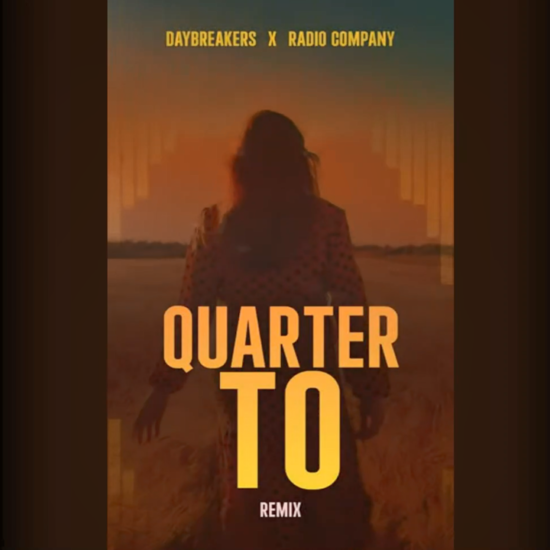
When the Cleveland Orchestra brought Mahler’s Fifth Symphony to Carnegie Hall in 2019, its conductor, Franz Welser-Möst, lowered his baton and paused before the Scherzo.
An unassuming young man walked from the horn section to the front of the stage, where he stood as if he were a concerto soloist. He lifted his instrument, and let out a call: a buoyant, warm herald of a bright new day. When the movement ended, he simply took his seat again.
It was an unexpected interlude. Few orchestras follow the practice — dating back to Mahler’s lifetime — of placing the horn so prominently, near the conductor’s podium, in the symphony’s Scherzo. More surprising, though, was the sound that came from that player, whom barely anyone in the audience had heard before. His solo turn, delivered with a clarity even veterans struggle to achieve, had the makings of a major artist’s arrival. But who was he?
A quick flip through the program provided the answer: Nathaniel Silberschlag, who, at just 21, had recently taken the seat of principal horn with Cleveland, one of the most skilled and storied orchestras in the country. And the concert was among his first with the ensemble.
But because of the pandemic, it was also his last at Carnegie for a long time. The Clevelanders didn’t return there until June 1 — when Silberschlag’s horn resounded again, in the soft yet dignified opening theme of Schubert’s “Great” Symphony. Now 23, and following a two-year probationary period, Silberschlag is an official, tenured member of the orchestra, with a long career ahead of him there if he wants it.
“It’s not a joke when I say that when I was practicing in my basement while growing up, my parents, out of encouragement, would yell, ‘It sounds like the Cleveland Orchestra down there!’” Silberschlag said in an interview before last week’s concert. “The tradition of this orchestra, the tradition of this brass section — it is as cliché as it gets, but it is a dream come true that I made it here.”
SILBERSCHLAG WAS BORN into what he called a “very, very musical family.” That might be an understatement. There are well over a dozen professional musicians, and plenty of Juilliard School degrees, among his relatives. His grandfather was Sol Greitzer, a violist who played under Toscanini and held the principal seat at the New York Philharmonic for over a decade (appointed by Pierre Boulez). His parents met as members of the Jerusalem Symphony Orchestra. And his older brother, Zachary Silberschlag, is the principal trumpet of the Hawaii Symphony Orchestra.
An offer to teach at St. Mary’s College of Maryland brought Nathaniel’s father and mother to that state, where he grew up in Leonardtown. The rural Chesapeake Bay location belied a well-traveled life; he followed his parents on work trips, most often to Italy. Because of that he became, he said, “a second-grade dropout” and was home-schooled — at a rapid pace that had him attending college classes when many teenagers would be starting trigonometry.
Silberschlag started piano at 3, then horn at 4. His first teacher was his father, but when he was about 12, he met Julie Landsman, the longtime principal horn at the Metropolitan Opera and a member of the Juilliard faculty. “His parents were very solicitous of my skills as a teacher,” she said. “But I found him to be brilliant, motivated, personable and talented beyond belief.”
With Landsman, he learned extra-musical practices that have been crucial to his youthful success: meditation and visualization. “You train your brain and wire it for this goal, and you at some time put yourself in a meditative state,” Silberschlag said. “You are training your brain to keep the negative thoughts out and positive thoughts in, and goal oriented.”
He visualized auditions so that when he did them, they would feel familiar and nonthreatening. And he had a goal in mind: a job with the Cleveland Orchestra, whose recordings were the first he reached for throughout childhood.
A major step came when he was accepted into Juilliard. That was right before a Passover Seder, which with Silberschlag’s extended family can involve impromptu performances or name-that-tune games. A relative joked: “OK, you got in. Let’s hear what was so good.” So, without a warm-up, he played from his audition — a virtuosic concerto — on the spot.
At 19, near the end of his third year at Juilliard, he won the assistant principal horn seat with the Kennedy Center Opera House orchestra. As a congratulations, he was offered a drink. “And of course,” Silberschlag said, “I had to fess up and tell them, ‘Well, I’m not 21 yet, and unfortunately my father is, like, in the car waiting to take me home.’”
During his senior year, he said, “I lived on Amtrak.” He commuted between Juilliard and the Kennedy Center a few times a week. At one point he was playing in a run of “Tosca” at the Washington National Opera while preparing a studio recital, orchestra concerts, papers and graduation at school.
He was also busy with auditioning for Cleveland. The orchestra’s principal horn position had been empty for several years. Welser-Möst invited guests, including the principal horn from the Bavarian Radio Symphony Orchestra, who turned down an offer because of the move it would entail. Gifted players didn’t seem like good fits for the group. “When you hire someone, don’t make it a compromise,” Welser-Möst said, “because it will always remain a compromise.”
Welser-Möst sought advice from Landsman, who told him that she had this guy, “the biggest talent I’ve ever seen.” So Silberschlag was invited to play — first for the conductor, then for the audition committee. He breezed through Mozart and Strauss, and ended with the Long Call solo from Wagner’s “Siegfried.”
“The last two measures of that, you always sit biting your nails thinking, ‘Is that person going to make it or not?’” Welser-Möst said. “This was the first time where it sounded like it was no problem. And I looked around at everyone there. They all sort of had an open mouth. They couldn’t believe it.”
Hear Silberschlag perform, and you can quickly tell what won them over. Landsman described his sound as rich, creamy and colorful; it’s also tenderly human, with the singing quality of a cello. And, Welser-Möst said, “whenever he plays, every note has meaning, and is connected to the overall expression of a movement or entire piece.”
But members of the Cleveland Orchestra, as Welser-Möst said, must be not only good instrumentalists, but also good musicians — invested in the ensemble as a whole, and able to navigate the dynamics of a team (something that Silberschlag had experience with, after years of playing baseball, his other passion, which could have become more serious if it weren’t derailed by an injury). Hence the probation period, which lasts two years.
At no point was Welser-Möst worried about Silberschlag’s youth. “If someone has potential, then the experience comes by itself,” he said. “And it’s not about age; it’s about maturity.” Experience came fast. One of Silberschlag’s first appearances was in that Mahler symphony. Not completely sure how to respond when Welser-Möst asked whether he would be willing to play at the front of the orchestra, he simply replied, “Would you like me to sit or stand?”
The solo itself wasn’t stressful, but the trip to the front of the stage was — “a long time to be thinking about yourself in silence while everyone else is also silent,” Silberschlag said. He tapped into the walking meditations he had learned from Landsman, who was at the Carnegie concert and recognized what he was doing from her seat. At the end of the performance, he took the first solo bow. Next was Michael Sachs, the principal trumpet, who gave up his own bow to walk over to Silberschlag and raise his arm like a champion fighter.
Probation was interrupted when the pandemic shut down performances in March 2020, and again when concerts resumed with almost exclusively string repertory, since those players could remain masked, while brasses and winds could not. Silberschlag had to take a long break from the orchestra. He ended up spending much of the time in Maryland, where he practiced in his parents’ basement.
That’s where he logged onto a video call one day for his final tenure meeting. He was in. “When you play Mahler Five in your second week and you succeed like he did — sorry, it’s a no-brainer,” Welser-Möst said. But, he added, other players also follow Silberschlag’s sound with ease, which is a sign of natural leadership. He has a running joke with Silberschlag about checking in from time to time to ask, “Has your head gotten any bigger?” But the answer, as recently as last week, was still no.
With the possibility of five more decades ahead in Cleveland, Silberschlag said, “I couldn’t be happier that I got to be in this orchestra as soon as I did so that I can spend as much time as I physically can in the orchestra.”
Having once listened to the ensemble’s recordings obsessively, he is now on them himself. And he has begun to teach, sharing a studio at the Cleveland Institute of Music with Richard King, Silberschlag’s predecessor. He has, Welser-Möst said, everything it takes to be a role model, not just a great artist.
“The potential with him,” Welser-Möst added, “is to become a real legend.”













